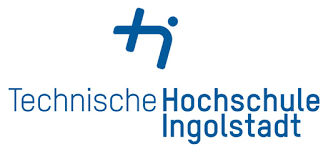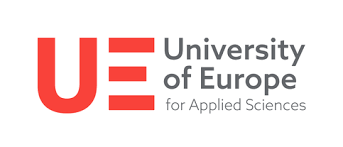Master's in UX Design in Germany: Top 6 Programs in Germany

Contents
Germany is rapidly becoming a top destination for future UX designers who want to combine design skills with real-world experience. A Master’s in UX Design in Germany gives international students the opportunity to study cutting-edge user experience and interface design in a global innovation hub.
This article covers why you should study UX Design in Germany, top universities for UX Design, admission requirements, job prospects, and more for international students.
Why Study a Master’s in UX Design in Germany?
Germany offers a unique blend of academic excellence, industry collaboration, and affordable education, making it ideal for those interested in user experience design. Here's why it's a great choice:
-
Innovation-driven country: Home to global tech and design firms, offering real-world exposure.
-
Affordable education: Many public universities have low or no tuition fees, even for non-EU students.
-
Globally recognized degrees: German master’s programs are known for high academic standards.
-
Focus on practical experience: Many courses include internships or collaboration with companies.
If you're passionate about interaction design, usability, and the psychology behind digital products, Germany provides an ideal ecosystem to master these skills.
Germany also ranks high in quality of life, student safety, and cultural diversity, making it a welcoming and inspiring place to study and live. With vibrant cities like Berlin, Hamburg, and Cologne offering design-oriented communities, students can immerse themselves in creative networks and events throughout their studies.
Master’s in UX Design in Germany in English
Int. Study Programs
Universities
Cities
International students often prefer programs taught in English, and many German universities offer Master’s in UX Design in Germany in English to attract global talent.
Typical course modules include:
-
Human-Centered Design
-
User Interface and Usability
-
Design Thinking
-
Interaction Design
-
Cognitive Psychology
-
Information Architecture
-
UX Research Methods
-
Agile Project Management
-
Cross-cultural Design Strategies
These master's programmes focus on both theoretical foundations and hands-on training, ensuring students build strong design skills and a portfolio that showcases their practical capabilities.
In many cases, students are required to complete real-world UX projects in collaboration with local businesses or tech startups. These practical projects not only enhance learning but also build professional connections in the German job market.
Best Universities in Germany for Master’s in UX Design
Admission Requirements for Studying UX Design in Germany
To apply for a Master’s in UX Design in Germany, international students typically need the following:
-
A bachelor’s degree in design, computer science, media studies, psychology, or a related field
-
A portfolio showcasing design projects (UX, UI, interaction, graphic, etc.)
-
English proficiency (IELTS/TOEFL scores if applicable)
-
Letter of motivation
-
Curriculum Vitae (CV)
-
Letters of recommendation (optional but helpful)
Some programs may also require an entrance exam or interview.
Note: Make sure your documents are translated and certified if they are not in English or German.
It’s also advisable to check if your academic background is recognized in Germany through platforms like Uni-Assist or DAAD. Applying early is recommended due to limited seats and competitive selection, especially at top institutions.
Job Opportunities After Master’s in UX Design in Germany
Graduates of a master’s in UX in Germany for international students are highly sought-after in the tech and creative industries. Common roles include:
-
UX Designer
-
UI Designer
-
Interaction Designer
-
User Researcher
-
Product Designer
-
Usability Analyst
-
Information Architect
-
Accessibility Consultant
Germany’s thriving tech ecosystem, particularly in cities like Berlin, Munich, and Hamburg, offers strong job prospects. Thanks to the 18-month post-study work visa, many international students stay in Germany after graduation.
Typical employers:
-
Tech startups
-
Digital agencies
-
E-commerce companies
-
Automotive and manufacturing giants (e.g., BMW, Bosch)
-
Fintech and healthtech firms
-
Edtech platforms
-
Government digitalization projects
Beyond traditional employment, Germany also supports freelance and entrepreneurial careers in UX design. Graduates can work independently on digital projects, offer consulting services, or start their own design studios. The German government provides pathways for self-employment through the freelancer visa, which is popular among creatives.
In addition, the demand for UX professionals extends beyond tech. Industries like healthcare, education, finance, and mobility are investing in user-centered solutions, expanding the scope of opportunities for skilled UX designers. With increasing digitization and a strong emphasis on usability and customer satisfaction, UX professionals are among the most in-demand experts in the German labor market.
Networking plays a crucial role in job placement. Students and graduates benefit from attending local meetups, hackathons, design exhibitions, and conferences such as UXcamp Europe or the Interaction Design Association (IxDA) events.
Salaries for UX roles vary based on experience, location, and company size:
-
Entry-level UX Designer: €40,000 - €55,000 annually
-
Mid-level UX Designer: €55,000 - €70,000 annually
-
Senior UX Designer/Team Lead: €70,000 - €90,000+
With experience and specialization, such as in UX strategy or service design, professionals can progress to leadership roles like Design Manager or Head of UX.
FAQs
Is Germany good for UX design studies?
Yes, Germany is known for its design-oriented education system, global companies, and strong job market for UX professionals.
Can I study UX Design in Germany without knowing German?
Yes, many master’s programs are offered entirely in English.
How much does it cost to study UX in Germany?
Public universities often have little to no tuition. Living expenses range between €850-€1,200/month.
This might also be of interest to you

Master's in UX Design in Germany: Top 6 Programs in Germany
Germany is rapidly becoming a top destination for future UX designers who want to combine design skills with real-world experience. A Master’s in UX...

Master's in Public Policy in Germany: 14 Programs & Top 7 Universities
Public policy is about understanding how rules, laws, and decisions are made to help improve society. It looks at big questions like how to make...

Top 6 Universities & Programs: Master's in Renewable Energy in Germany
Germany is a global leader in clean energy, making it a top choice for students who want to make a difference. If you're passionate about solar,...

Master’s in Artificial Intelligence in Germany: 39 Best English-Taught AI Courses
With Germany emerging as a hub for innovation and advanced technology, pursuing a Master’s in Artificial Intelligence in Germany is a strategic move...

Master’s in Cybersecurity in Germany: Top 19 Programs & Universities
Germany has emerged as a leading destination for international students seeking advanced education in technology and digital security. With its...

Study Cognitive Science in Germany
Are you fascinated by how the human mind works and how we can build intelligent systems that mimic human thinking? If you're passionate about areas...

Study Aviation Management in Germany: Top 6 Universities & 11 Programs
Dreaming of a career in the aviation industry? Whether you're passionate about air traffic, airline operations, airport management, or aviation...

Study Applied Data Science in Germany: 95 Study Programs in English
Are you fascinated by data and its power to shape the future? Do you dream of making data-driven decisions in fields like healthcare, neuroscience,...










